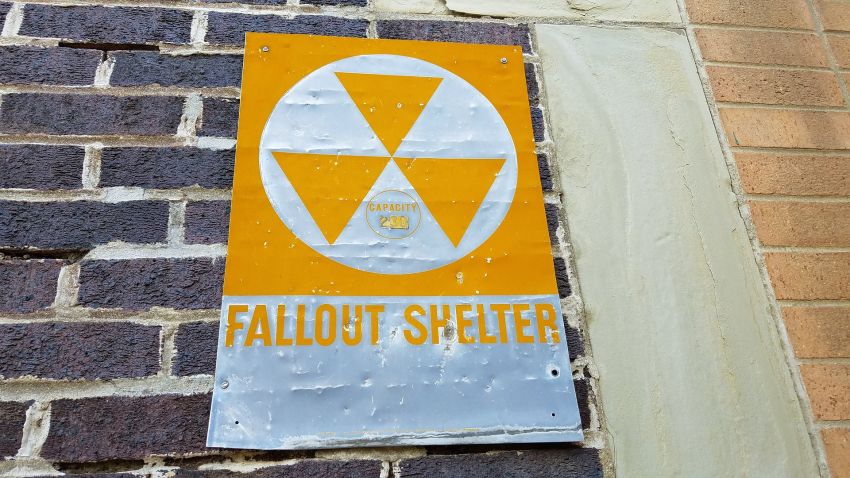
Every year, the Don’t Bank on the Bomb (DBOTB) report profiles the world’s largest nuclear weapons producers and reveals the financial institutions that invest in them. The latest report, published on November 9, shows that investors around the world made a total of US$685 billion available to nuclear weapons companies between January 2019 and July 2021.
Australian-headquartered financial institutions account for US$6.7 billion. The biggest investors are Westpac (US$2 billion) and Macquarie Group (US$1.8 billion). The latter held bond and shareholdings in several major arms contractors during the period, including BAE Systems, Lockheed Martin, Raytheon and Northrop Grumman.
The DBOTB report is published by PAX, a Netherlands-based organisation that works to persuade financial institutions to divest from the nuclear weapons industry. In Australia, the Medical Association for the Prevention of War (MAPW) leads the Quit Nukes campaign targeting superannuation funds.
The case of Serco
Critics of divestment often claim that it “doesn’t work”; it is a “blunt instrument” that won’t change company behaviour and won’t have any real impact on the activities that it targets. But last week, a news story emerged that shows just how effective divestment can be as a tool for bringing about change.
Britain's Sunday Telegraph, reported that major government contractor Serco has been forced to abandon plans to bid for contracts at Britain’s Atomic Weapons Establishment (AWE) after investors threatened to sell their shares in the company. Serco was part of a consortium that managed AWE (AWE Management Ltd) until it was renationalised earlier this year. The facility is responsible for the design, manufacture and support of Britain’s nuclear warheads.
Fund managers warned Serco that “working with nuclear weapons might force them to dump Serco shares as a result of non-compliance with Environmental, Social and Governance standards”, the Telegraph reported. The fund managers are not named, but Serco has increasingly appeared on investor blacklists in recent years due to its role in the consortium.
Impact of the nuclear ban treaty
The article reports that fund managers rejected Serco’s argument that investing in a Trident contractor is “ethically no different to owning UK sovereign debt, as both are functions of a democratically elected government”. This detail is significant, as it suggests that investors are adhering to the international norm against nuclear weapons that was established by the Treaty on the Prohibition of Nuclear Weapons, despite that the fact that Britain is not party to the treaty.
The ban treaty has made investors increasingly wary of nuclear weapons producers, as DBOTB explains: “[Nuclear weapons] are now comprehensively outlawed, as is any assistance with producing, manufacturing or developing them. Financial institutions that continue investing in companies building nuclear weapons face regulatory risks as more countries join the treaty. They also face an increased reputational risk as clients learn of their support for weapons of mass destruction and terminate their relationships.”
More than 100 financial institutions have divested from the nuclear weapons industry since the treaty entered into force in January this year. This includes Bank of Ireland and AIB (Ireland), and South African firm Investec.
Divestment in action
It appears that the prospect of losing investors was enough to persuade Serco — which previously held long-term nuclear weapons contracts as part of AWE Management Ltd — to pull out of the competition for future nuclear weapons-related work. This provides a clear example of divestment, or the threat of divestment, changing company behaviour.
Furthermore, the story shows how investor action has the potential to undermine the viability of nuclear weapons programs. The Telegraph noted that Serco’s decision “leaves defences chiefs with fewer options as they seek to restructure the management of Britain’s nuclear stockpile”. This could hinder the Ministry of Defence’s ability to complete the Trident renewal project, which is already in serious trouble.
Join the movement
As the Serco story illustrates, divestment is a powerful tool that we can use to advance the goal of a nuclear-weapons-free world. MAPW has highlighted the superannuation funds that already exclude nuclear weapons from investment and is urging fund members to contact others. DBOTB provides a wealth of resources to help people engage with financial institutions, elected representatives and the media.
The more financial institutions that divest, the more companies will be forced to withdraw from nuclear weapons work like Serco. This will make it harder for nuclear-armed nations to maintain their nuclear arsenals in the long run.
[An earlier version of this article appeared in Bella Caledonia.]